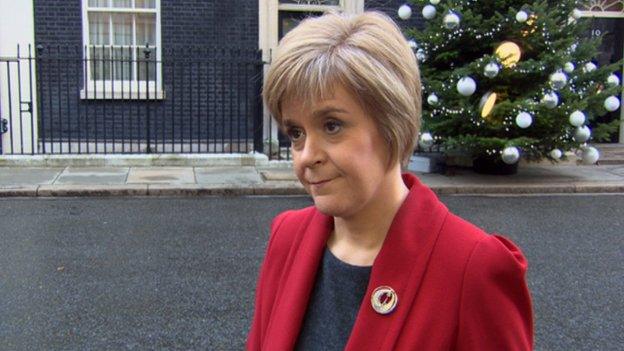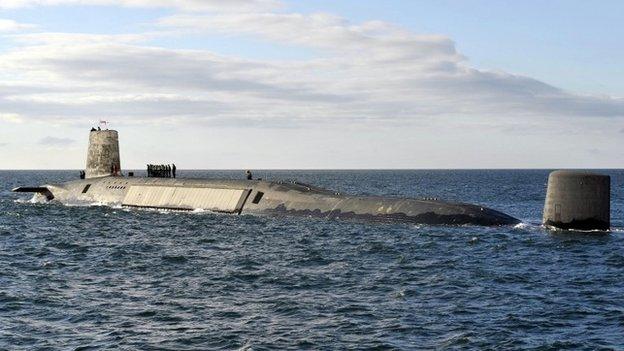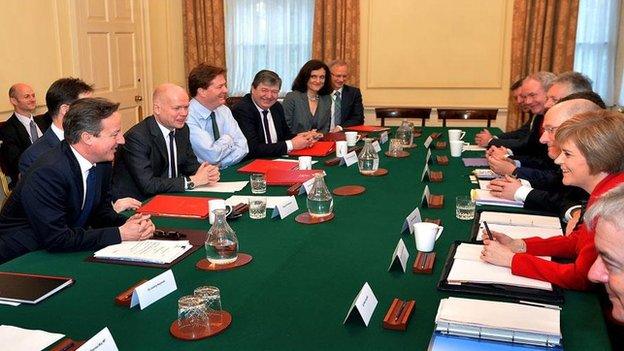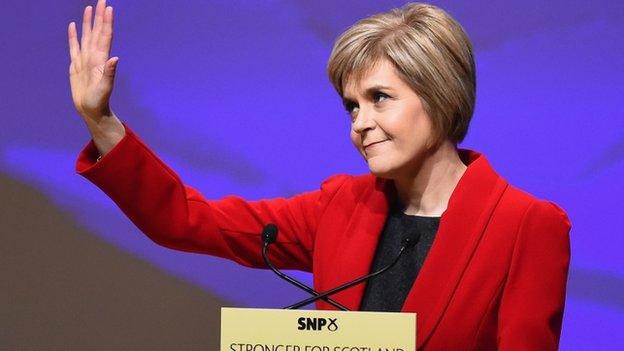'No Trident renewal' key to any post-election SNP deal
- Published

Ms Sturgeon attended talks at Downing Street with Prime Minister David Cameron
The SNP will not lend its support to any party that favours Trident renewal if there is a hung parliament after the UK general election next year.
The party's leader and Scotland's First Minister Nicola Sturgeon has been laying out her key demands in the event of the SNP being asked to do a deal.
She ruled out any electoral pact with the Tories, but hinted she could reach agreement with Labour.
She also repeated calls for the SNP to be included in pre-election TV debates.
Ms Sturgeon was speaking after attending a meeting of the Joint Ministerial Council, which brings together UK ministers and the leaders of the devolved administrations.
She also held separate face-to-face talks with Prime Minister David Cameron where he agreed to give the Scottish Parliament the power to lower the voting age in time for the 2016 election.
Laying out her terms for any post-election deal with other parties, Ms Sturgeon said she could not lend her support to any party that wanted to go ahead with replacing the Trident nuclear missile system.
She did not use the phrase ''a red line'' but made it plain that a refusal to invest in a Trident replacement would be necessary before her party could reach any agreement, according to BBC Scotland's Westminster correspondent David Porter.

Ms Sturgeon called for the SNP, the Welsh nationalists and the Green Party to be included in any TV debates in the run-up to May's Westminster General Election.
She said a refusal to do so would be ''indefensible'' because the SNP was now the third largest UK party in terms of membership .
She joined with Plaid Cymru leader Leanne Wood and leader of the Green Party in England and Wales, Natalie Bennett, to state that all three parties will unite whenever possible to "battle the Westminster parties' obsession with austerity".
The three party leaders said next May's election was an opportunity to change UK politics for the better.
- Published15 December 2014

- Published15 November 2014
